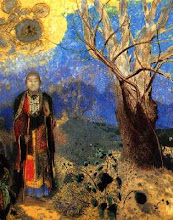Here is my fourth Faithbook post from August 22nd, 2008.
It's been exactly six month since I last posted to Faithbook. So, where have I been since February? Where am I now? Where am I going? These questions and more will be answered in our next thrilling episode.
Item one: where am I now? In India. Pune to be exact. Three hours from Bombay, in the great state of Maharashtra. I'm typing away in a cyber café that just re-opened after being closed due to the vague threat that terrorists would use it to send intimidating emails around the world.
Believe it or not, I have been thinking a lot about this blog over the last several months. I felt terribly guilty that I agreed to write regular entries and then only made it a few weeks before various pressures led me to abandon it. Some of these pressures are hard to explain. Some are too personal and some are merely lame excuses. The bottom line is, I should have honored my commitment and I didn't. I sincerely apologize for this.
Item two: Where have I been? Well...I've been where I have always been: in a less than New York State of Mind. Truth be told, I was diagnosed several years ago with Dysthymia, or chronic, low-grade depression. It seems that as far back as I can remember, I've just always felt a little bummed. With the onset of adulthood, what was once just a negative attitude or a sour disposition or a case of the blues began to flare up into full blown panic attacks and depressive episodes. Over the last five years, these blues were too often turning midnight black.

The paradox of depression is this: when you're feeling fine, you don't consider yourself sick enough to seek out professional help, and when you're in the grip of a monstrous case of fear and anxiety, you're too beaten down to do anything about it. So, things get worse.
I knew that if I continued writing in this blog I would eventually spill the beans about my depression, my colleagues would read it and I would face the possibility of being deeply stigmatized. In the same way, I feared that writing about my own personal spirituality may have the same results as writing about my precarious mental state (not that the two can ever be separated).
I'm supposed to be training as a scholar of religion, and writing about my own spiritual journey is not exactly de rigueur in my field. I am expected to be an objective observer of ritual activity, professions of faith, doctrinal disputes and other sundry phenomena that falls under the heading of religion. On multiple occasions I have been warned by my peers and superiors that I wouldn't want potential employers googling my name and reading a blog about my own personal Buddhist practice. I don't want to be seen as being too personally invested in my field of inquiry, and thus somehow unfit for a faculty position. Frankly, graduate school is stressful enough, and the looming threat of holding a Ph.D. and still having to work behind the counter at McDonald's is real enough, that I let cowardice get in the way of personal expression. Stephen Dedalus would not be proud.
So to summarize, I haven't been writing due to the following: cowardice, nervous break-down, pressure (real or imagined) from colleagues (present and future), buying and moving into a new house, spending the summer in India learning Pali. I think that's enough for one year, don't you?
"But," you may be asking, "where does Buddhism fit into any of this?"
Well, to put it succinctly, when I look at life through my physical eyes I too often see nothing but stress and suffering in my past, in my future and in my present. But when I look through the eyes of wisdom or what Dōgen calls "The True Dharma Eye," I see all things as Buddha things. I perceive things as they really are: an impermanent collection of parts and impulses. And seeing things in this way makes me much less likely to care what my current cohort or future employees or anyone else may or may not say about my writing.
So now my motto is (not really, but bare with me): "When the going gets tough, the blog gets going." Anyway, by the time I'm on the job market (Fall Semester, 2012) either the current world epoch will have come to a close in a ragnarokian conflagration or (only slightly less likely) blogging will be so passé that potential employers will not even bother to read the thing, or care a whit if they do.
Medication has not brought me to these insights. Meditation has. The next step, the next thrilling adventure, will be to combine the two.
Stay tuned.







































